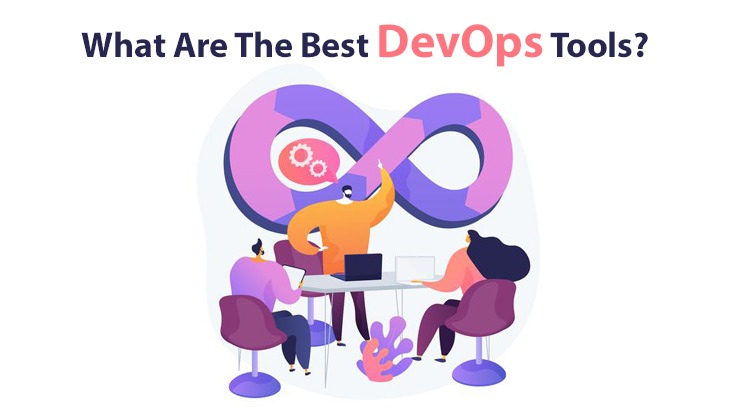What are DevOps Tools?
The conventional disconnection between software development teams and information technology services organizations once caused many difficulties throughout the composition process. Then came the concept of DevOps, which has its origins in the Agile methodology and combines the two partners to enhance collaboration and productivity.
There are many varying definitions of the word "DevOps," and the thoughts behind it are multilayered. But most will admit at least that connection and automation are significant parts of DevOps, and particular DevOps tools help organization members guarantee that those two components will be executed as efficiently as achievable. Of course, your organization's specific needs will conclude which tools are most suitable for you.
Not only will we pitch each of these top DevOps tools by the handle, but we'll stroll through how all fit into the software development, delivery and maintenance process. We won't imagine saying that any one tool is eternally better than another because we know that DevOps tools can sometimes make more sense for one team or situation than they would in different.
Here is a list of DevOps tools many acknowledge to be the best in production.
List of DevOps tools
Docker:
Docker is the most successful and most commonly used DevOps Engineers accessory in the top series of DevOps tools. Docker is a Linux-based open-source platform that concentrates on containers, indicating you package up the software with its dependencies and export everything collectively as a unit—no obligation to worry about handling dependencies independently. It's compact and highly secure, you can use any language with it, and it combines well with several other mechanisms, such as Jenkins, Ansible, and Bamboo.
Ansible:
The other most famous DevOps tool is Ansible. This open-source DevOps tool is for automating software provisioning, configuration control, and application deployment are straightforward to use—you don't even require to produce a dedicated policies administrator—yet Ansible can run deeply complex implementations. Plus, it's agentless and practices a simple syntax communicated in the YAML language. NASA applies Ansible.
Git:
The third successful DevOps tool is Git. Git is a top-rated open-source DevOps medium used by business giants such as Microsoft, Amazon, and Facebook. It enables you to trace the progress of your progress work and coordinate work among organization members. Git is famous for experimenting because you can return to previously saved variants of your task, and you can also build branches independently and then add in the new points when they're ready. You'll require to host a container for the work as a whole, such as GitHub.
Jenkins:
While Ansible concentrates a lot on automation and smoothness of use for configuration control, Jenkins focuses on the CI/CD pipeline and strengthening sturdy deployment computerization. Both Ansible and Jenkins are free automation servers. Clients can use them for secure CI/CD pipelines, app deployments, and configuration management, but multiple partnerships look at Jenkins as the golden standard for CI. Depending on your toolchain, architecture and team structure, you could uncover yourself wanting to use both media for diverse reasons.
Chef:
Chef uses powerful language for configuration management, which allows for greater customization and gives DevOps, and IT teams the capability to register every aspect of their connections. However, the ability to customize too generously can lead to highly complicated, unnecessary methods and tech debt. Chef is a more beneficial configuration management and CI/CD tool for developers but can frequently be hard to manipulate for more conventional IT development teams.
Puppet:
Puppet practices a declarative style that is more like a classification of an asset's position but doesn't allow developers to negotiate how they can accomplish a particular state. This limitation can limit customizability but often allows more benefits approaching reliability. The regulations force DevOps and IT teams to produce ideal arrangements and lay them out inside compulsions, reducing the significance of control, but often begins with more outspoken accounts and excellent security.
Bamboo:
Bamboo is comparable to Jenkins but isn't free. You'll get prebuilt functionalities for the price, indicating there are far more scattered plugins. Bamboo also has a highly intuitive user interface with features such as auto-completion. All in all, it can preserve you much time when related to open-source tools, depending on what you're attempting to achieve.
Summary
You'll likely need some of the tools posted above in some sequence or another. No DevOps device is a replacement for careful thought manners, accurate documentation, collaborative engineers and robust applications and foundation. But, no matter how powerful your organization team, incidents are obliged to happen. DevOps-minded engineers can feel assured with managing accountability for the uptime and overall production of their dependence with these DevOps tools and practices by your side.















Post Comments